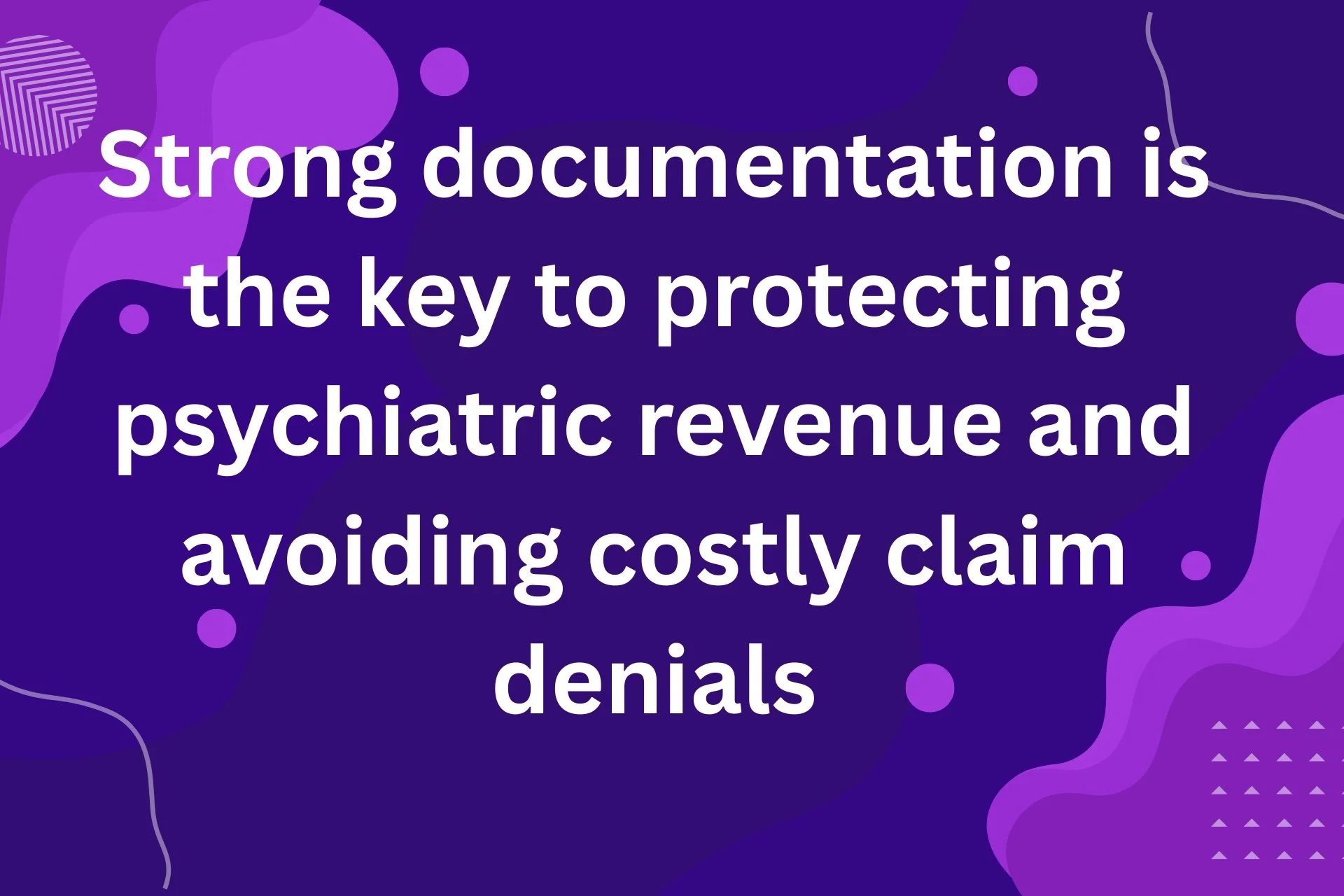How Psychiatrists Can Prevent Denials Through Better Documentation
In behavioral health and psychiatry, accurate documentation isn’t just about compliance—it’s a key revenue-cycle management (RCM) strategy. Studies show that up to 18–22% of psychiatry claims are denied due to incomplete or unclear documentation, resulting in significant revenue leakage for providers. Missing time details, vague clinical notes, and lack of medical necessity justification are among the most common culprits. With payers becoming more stringent in reviewing claims for psychotherapy and E/M visits, psychiatrists must bridge the gap between clinical care and coding precision to ensure full reimbursement.
Improving documentation isn’t just about avoiding denials—it’s about protecting your practice’s financial health. When psychiatry providers implement structured templates, time-based coding accuracy, and consistent note reviews, they can reduce claim rejections by up to 30%, according to industry RCM benchmarks. At Advanced Healthcare Revenue (AHR), we help psychiatry practices streamline their documentation and billing workflows, ensuring compliance, faster payments, and fewer lost claims through proactive RCM solutions.
Top Documentation Practices to Prevent Psychiatry Claim Denials
Differentiate Psychotherapy from E/M Services:
Many denials occur when time or service details for psychotherapy overlap with evaluation and management (E/M) documentation. Always specify the duration of psychotherapy (e.g., 30, 45, or 60 minutes) and clearly separate it from medication management notes. This level of clarity not only supports medical necessity but also ensures accurate CPT code assignment.Include Time and Modality in Every Session Note:
Insurance carriers require both time spent and therapy type (e.g., CBT, DBT, family therapy) for payment. Failure to document these details can result in claim downgrades or denials. According to CMS, “time-based codes must reflect the total time spent face-to-face,” which makes time-tracking accuracy essential for psychiatrists.Link Documentation to Medical Necessity:
Payers increasingly audit psychiatry documentation for evidence of progress and necessity. Each note should reflect the patient’s clinical symptoms, treatment plan adjustments, and measurable outcomes. This not only strengthens compliance but also serves as justification for ongoing care and higher-level codes.
How AHR Helps Psychiatry Practices Thrive
At AHR, we specialize in mental health and psychiatry RCM that goes beyond basic billing. Our team audits documentation before claim submission, flags missing modifiers, and ensures every service is supported by payer-specific compliance language. With automated tracking and customized templates for psychiatric coding, AHR clients report up to a 25% improvement in clean claim rates within the first 90 days.
We partner with psychiatrists to simplify documentation workflows—helping providers focus on patient care while we handle coding accuracy, denial prevention, and reimbursement optimization. When your documentation is smarter, your revenue cycle is stronger.
Strong documentation is more than a billing requirement, it is part of a psychiatrist’s ethical duty to reflect the care being provided. Each note tells the story of the patient’s progress, the reasoning behind treatment decisions, and the continuity of care that supports mental health outcomes. When documentation accurately captures this story, it not only ensures fair reimbursement but also protects both patient and provider integrity. The ability to translate clinical care into compliant documentation is what separates thriving practices from those struggling to meet financial and regulatory demands.
The reality is that most denials in psychiatry are not due to lack of care, but lack of clarity. Providers often deliver exceptional service, yet vague notes or incomplete time tracking can lead to underpayment or audits. By prioritizing education on documentation standards, engaging staff in ongoing compliance reviews, and using practical templates that support medical necessity, psychiatrists can reclaim control over their revenue while maintaining focus on what matters most—the patient. Better documentation does not just prevent denials, it sustains the future of mental health care by ensuring that the financial stability of the practice matches the value of the service delivered.
